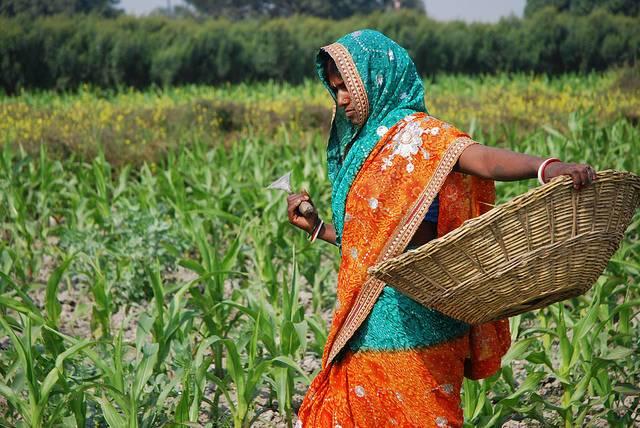
According to a study by Tamma Carleton, a Ph.D. student at the University of California-Berkeley, climate change and its impacts on crops in India can be linked to 59,000 suicides across the country over the past three decades.
Carleton’s grim assessment adds to the explosive debate over the causes behind the rise of suicides across India the past four decades. Various research shows that India’s suicide rate has increased steadily since the late 1970s, and many underlying reasons, from the country’s rapid social change to the marginalization of many citizens, have been explored. Estimates generally put one-fifth of the world’s suicides in India.
Farmers are among the Indians who have turned to suicide in larger numbers, and often do so out of economic desperation. Some analysts say origins of the crisis lie with a World Trade Organization (WTO) ruling almost 20 years ago that opened up India’s farming sector to the world’s largest agribusiness companies. Others counter that the lack of access to irrigation, and dependence on rain, in turn results in far more reliance on pesticides and fertilizers – and hence the links between loans, bankruptcy, and suicide in the worst-case scenarios for owners of small Indian farms.
What is not in dispute is that more farmers throughout India find themselves trapped in debt; have little, if any, access to any farming assistance programs available in wealthier nations; and as a result, a spell of bad weather can result in tragedy for a family.
In recent years, press reports in India have said that over half of the families working in agriculture are buried in debt – and that in some states, as many as 90 percent of farmers are unable to pay off those loans. And instead of farm credit programs or access to the banking system, many of these farmers rely on informal financial networks, which are a polite description for what many of us would call predatory lenders or even loan sharks.
Evidence so far suggests that this trend will not improve anytime soon, as climate change continues to wreak havoc across the subcontinent. In India’s southern state of Tamil Nadu, for example, farmers have been coping with the worst rainfall in 140 years, and out of anger and desperation, farmers have traveled far north to bring attention to their plight in the country’s capital, New Delhi.
Carlton approached her research by analyzing available government data from the past 47 years, including suicide records, crop yields and climate patterns. She concluded that for every 1°C increase in a single day’s average temperature, there is a correlation to an additional 70 suicides. This effect, according to Carlton, overwhelmingly occurs during India’s growing season – which is also the time of year when heat can also kill crop yields. Overall, Carlton’s says her analysis shows that rising temperatures over the past 30 years can he accountable for 59,300 suicides, or 6.8 percent of India’s overall increase in its suicide rate.
Demographers, mental health experts and policy makers will agree to disagree on Carton’s research and the degree to which climate change has had an impact on Indian farmers’ suicides. But where they can find consensus is that India’s farming and food distribution systems are failing many people.
On one hand, subsidies and improvements in agricultural techniques in recent years have succeeded in boosting yields and even causing a surge in imports to regions such as the Middle East. Nevertheless, many Indian children are still suffering from malnutrition, and too many farmers are not coming anywhere close to gaining the economic benefits government after government have promised for several decades. For companies who see Indian agriculture as important to their supply chains' future, working to ensure farmers can grow their way out of debt will be start towards building trust in this rapid- but unevenly-growing economy.
Image credit: CIMMYT/Flickr

Leon Kaye has written for 3p since 2010 and become executive editor in 2018. His previous work includes writing for the Guardian as well as other online and print publications. In addition, he's worked in sales executive roles within technology and financial research companies, as well as for a public relations firm, for which he consulted with one of the globe’s leading sustainability initiatives. Currently living in Central California, he’s traveled to 70-plus countries and has lived and worked in South Korea, the United Arab Emirates and Uruguay.
Leon’s an alum of Fresno State, the University of Maryland, Baltimore County and the University of Southern California's Marshall Business School. He enjoys traveling abroad as well as exploring California’s Central Coast and the Sierra Nevadas.














